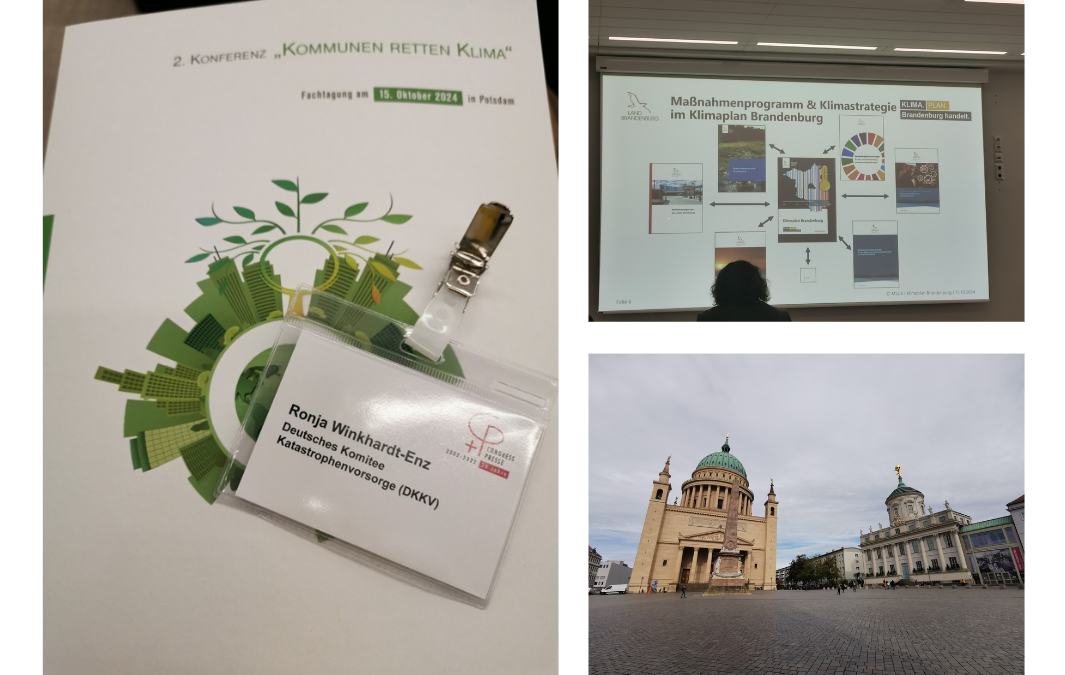On 15 October 2024, the second ‘Municipalities Save the Climate’ conference took place in Potsdam, organised by Congress und Presse, Bonn. The event, which took place at the House of Brandenburg-Prussian History, provided a platform for experts and decision-makers to discuss innovative solutions and strategies to combat climate change at municipal level.
The day began with a keynote speech by Dr Ingo Sasgen from the Alfred Wegener Institute, who highlighted the challenges of climate change in the polar regions. He emphasised once again that higher sea levels increase the risk of flooding. The state of Brandenburg’s climate plan was then presented, which supports local authorities in implementing adaptation measures with a transformation & climate protection package. Nevertheless, achieving climate neutrality for Brandenburg by 2045 remains a major challenge.
A coffee break was followed by a session on the consequences of climate change and heat adaptation strategies in cities and municipalities. Prof Dr Dea Niebuhr from Fulda University of Applied Sciences and Friederieke Torunsky from tetraeder.solar gmbh discussed the health risks of rapid temperature fluctuations, the heat transition and municipal heat planning. With this topic, it is important to raise awareness and emphasise how personally affected people are so that action can be taken more quickly. Sören Marquardt from digikoo GmbH presented innovative solutions for a sustainable energy supply, and Martin Bertram from the Brandenburg Ministry of the Interior and Municipal Affairs spoke about the fire situation in Brandenburg.
The last session of the day was dedicated to risk management.Prof. Dr Daniel Bachmann from Magdeburg-Stendal University of Applied Sciences presented the latest developments in flood risk management, emphasising the importance of resource efficiency and risk acceptance. Ronja Winkhardt-Enz from the German Committee for Disaster Reduction (DKKV) then addressed the municipal representatives and spoke to them about disaster management, resilience and lessons learnt from recent flood disasters.
The event provided valuable insights and practical approaches to tackling the climate crisis at municipal level and promoted dialogue between science, politics and practice.


